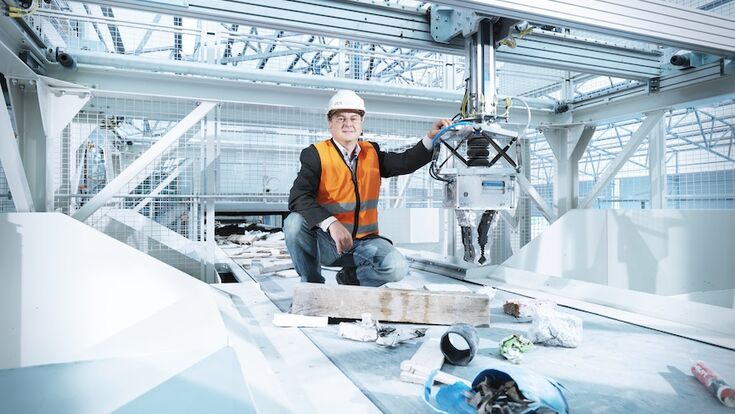2016 to be the Year of the Robot? : Rise of the Machines: Why Robots Will Transform Waste Sorting Methods

Rainer Rehn, chief commercial officer of Finnish firm ZenRobotics explains that next year, 2016, will be the Year of Robotic Waste Sorting.
More than ever before will intelligent multitasking robotic systems enter waste-sorting facilities. By providing forward- thinking waste management companies numerous economical, social and process-related incentives, the robotic revolution is just behind the corner.
Comparable to other process industries, the robotic recycling revolution is driven most importantly by money. Or, as in this case, significant cost savings generated by process efficiency and new revenue streams from high-purity recyclables that are now more diverse, thanks to unique recognition capabilities made possible by artificial intelligence.
In short, intelligent robotic waste sorting systems are autonomous, multitasking, learning and scalable systems that can operate tirelessly 24/7.
Moving away from fixed-function machinery
Along with tightening regulation for recycling and tough market conditions, waste management companies have their work cut out for them. Traditionally, waste sorting is based on dimensions.
An object’s size, weight or density defines where it lands in the end. Waste processing machines are fixed-function appliances that are designed for a specific task. There have been limited technical alternatives for sorting waste by shape, material or color, which explains the common practice of manual sorting, as only people have been able to sort objects based on characteristics.
Today, machine vision and exceptional recognition capabilities allow the robots to take over.
Just like people, intelligent robots can sort multiple materials on one spot. A single robotic unit can process a mixed waste stream, turning waste into valuable high-quality recyclables. The plant operator can with his mobile device switch the sorting task on the fly. Thanks to a flexible gripper, the robot can handle objects of various shapes and sizes, eliminating the need to resize the waste before processing, allowing savings in processing costs.
Multi-purpose robotic systems can be used to complement existing facilities or they can be set up as stand- alone sorting units. As robots require little pre-processing of waste, they can be set up in light scalable units, eliminating the need for complex processes and energy-intensive machinery.
Low energy consumption and autonomous operation allow long operating hours and high capital efficiency. As a result, waste can be processed faster and closer to the source, decreasing the costs involved in transport and storage.
Technology that adapts to volatile markets
Consequently, the waste business disruption is probably about moving from fixed-function machines to more flexible general-purpose sorting machines. As seen lately, conventional fixed-function machinery has limited capability to deal with unstructured and unpredictable waste streams and market volatility.
Ability to switch the sorting task is vital in order to maximize return from any available waste stream.
Intelligent robotic systems can process almost any given waste stream and sorting capabilities can be redefined for every new market situation – even on a daily basis. Furthermore, increased flexibility in recognition gives plant operators the possibility to explore new use cases.
This kind of flexibility has not been available in waste sorting previously. With time it will become harder to defend the investment on energy-intensive fixed-function technologies and complex processes.
In conclusion, intelligent robotic systems are general-purpose machines, which are largely capable of operating themselves.
Thus, intelligent robotic systems could disrupt the waste management industry and override conventional methods.
Read More
VIDEO: ZenRobotics Robot Recycler Goes Mobile as Company Wins Award Helsinki, Finland based robotic recycling sorting machine developer, ZenRobotics, has launched a semi mobile version of its ZRR robotic sorting machine.
Science Fiction or Reality: Robot Recycling
Recycling robots that think for themselves. Automated arms that can learn and get hurt. Is this something out of a science fiction novel? Nope, but a Finnish solution currently on trial sorting construction and demolition waste with SITA Finland. Tom Freyberg investigates.
ZenRobotics to Install Robotic C&D Waste Sorting System in Finland
Finnish recycling company, Lassila & Tikanoja is to install a ZenRobotics robotic sorting system at its flagship recycling facility in Kerava.
World's First Multi-Robot Recycling System for SITA Finland
ZenRobotics is to install the world's first robotic waste sorting plant to use multiple robots at SITA Finland's Helsinki C&I waste recycling facility.

